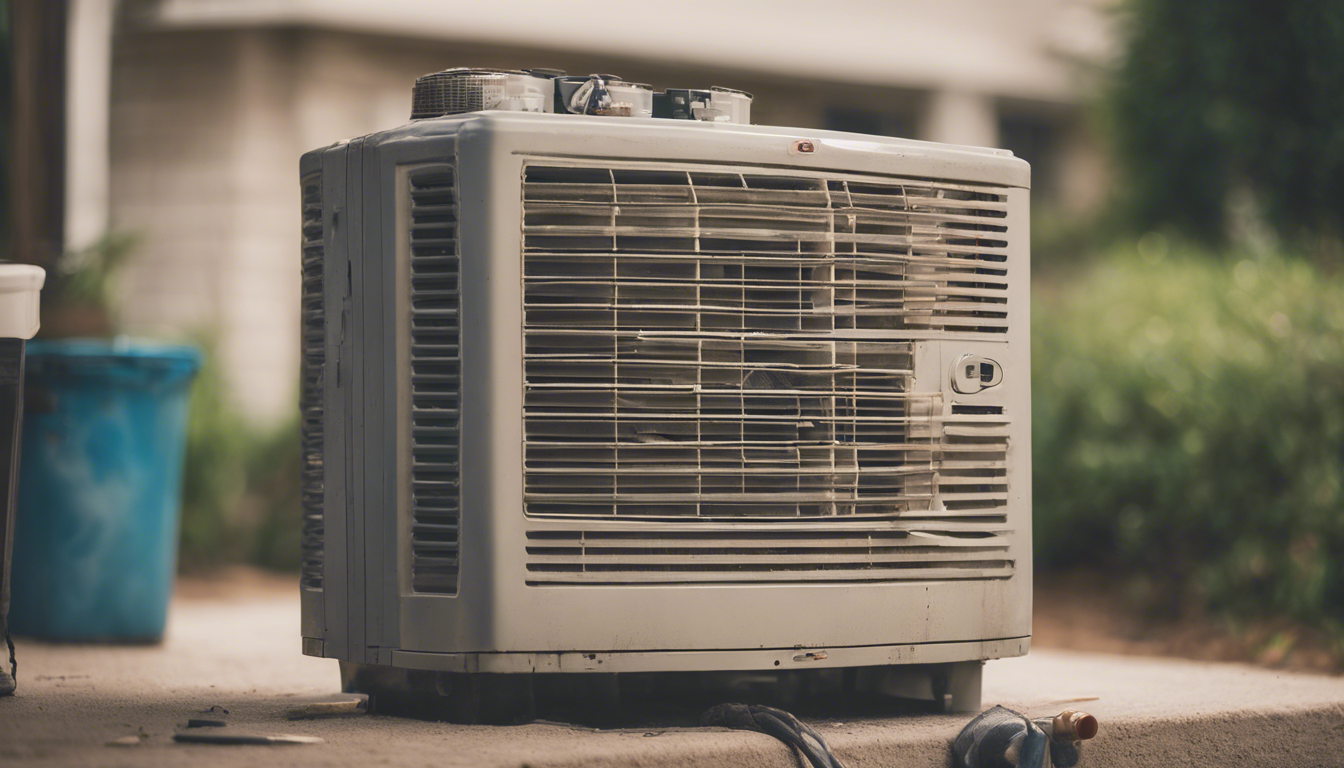As the summer heat intensifies, the last thing you want is for your air conditioning unit to break down. Knowing the signs your AC needs repair can save you from discomfort and costly emergency fixes. In this article, we will explore common AC issues, unusual sounds that signal trouble, inconsistent cooling patterns, rising energy bills, foul odors, and leaks, and when you should call a professional for repairs. By staying ahead of potential problems, you can ensure your home remains a cool oasis all summer long.
Key Takeaways
- Unusual sounds from your AC can indicate underlying problems that need attention.
- Inconsistent cooling suggests your unit may require repair to function efficiently.
- Increased energy bills may signal your AC is overworking due to malfunctioning components.
- Foul odors and leaks can pose health risks, making it crucial to address them promptly.
- Knowing when to call a professional can save you time and prevent further damage to your system.
Understanding Common AC Issues
Air conditioning systems are essential for maintaining comfortable indoor environments, especially during the sweltering summer months. Understanding common AC issues can help homeowners identify problems early, ensuring efficient operation and prolonging the lifespan of the unit. One frequent issue is inadequate cooling, which can stem from dirty air filters or refrigerant leaks. Regularly checking and changing air filters is crucial to maintaining airflow and efficiency. Another common problem is strange noises—such as banging or hissing—which can indicate a loose part or a malfunctioning component within the system. Additionally, if your AC unit is cycling on and off frequently, it may be a sign of an oversized unit or a faulty thermostat. By recognizing these common AC issues and seeking prompt professional help, homeowners can avoid costly repairs and maintain a comfortable living space.
Unusual Sounds: A Warning Sign
Unusual sounds emanating from your vehicle can be more than just an annoying distraction; they often serve as a critical warning sign that something may be amiss under the hood. It’s essential for drivers to remain vigilant and responsive to these auditory clues. For instance, if you hear a grinding noise while braking, it could indicate worn-out brake pads—a situation that calls for immediate attention to avoid further damage and ensure your safety. Similarly, a high-pitched squeal when you accelerate might suggest a problem with your engine belts. Catching these sounds early can save you time, money, and prevent more severe issues down the line. Therefore, if you experience any unusual sounds, don’t hesitate to consult a professional to diagnose the problem before it escalates.
‘The best way to predict the future is to create it.’ – Peter Drucker
Inconsistent Cooling: When to Be Concerned
As summer temperatures soar, homeowners increasingly rely on their air conditioning systems to keep their living spaces comfortable. However, it’s not uncommon for issues to arise, leading to inconsistent cooling and prompting the need for urgent repairs. Recognizing the ‘Signs Your AC Needs Repair: Avoid Getting Stuck in the Heat’ can save you from sweltering discomfort and costly emergency fixes. If you notice that some rooms in your home feel significantly warmer than others, or if your AC unit fails to maintain the set temperature, these are clear indicators that your system is struggling. Other warning signs include unusual noises coming from your AC unit, a sudden increase in energy bills, or frequent cycling on and off. Understanding and addressing these symptoms early can ensure that you enjoy a reliably cool home all summer long.
Increased Energy Bills: Is Your AC Overworking?
As temperatures rise, many of us rely heavily on our air conditioning systems to keep our homes comfortable. However, if you notice a sudden uptick in your energy bills, it could be a glaring sign that your AC is overworking and may need repair. Spotting the warning signs early can save you from being stuck in the heat during the peak of summer. Common indicators include inconsistent cooling, unusual noises, and frequent cycling on and off. If your unit is struggling to maintain a steady temperature, it’s essential to address these issues promptly. By being proactive and recognizing the signs your AC needs repair, you can enhance the efficiency of your system, lower your energy costs, and ensure a cool retreat from the sweltering heat outside.
Foul Odors and Leaks: Health and Safety Risks
When it comes to maintaining your air conditioning system, being aware of the signs your AC needs repair is crucial, especially during the sweltering summer months. One of the most concerning indicators is the presence of foul odors emanating from your unit. These unpleasant smells often signal mold or mildew growth within the system, which can lead to serious respiratory issues if not addressed promptly. Additionally, leaks can pose significant health and safety risks; they can lead to water damage and mold growth in your home, compromising both your property and well-being. Much like strange noises or inconsistent cooling, these signs are red flags that indicate your AC is not operating efficiently. By recognizing these warning signs early, you can avoid getting stuck in the heat and ensure a safe, comfortable environment for your family.
When to Call a Professional for Repairs
As temperatures rise, it’s essential to ensure your air conditioning system is functioning optimally. Recognizing the signs your AC needs repair can save you from the discomfort of being stuck in the heat. If you notice a sudden increase in energy bills, a persistent musty or foul odor, or irregular temperature fluctuations in your home, it’s a clear signal that your AC unit requires professional attention. Additionally, if your system is making unusual noises, such as hissing or banging sounds, or if it fails to turn on altogether, it’s time to call a qualified technician. Addressing these warnings promptly not only enhances your comfort but also extends the longevity of your AC unit, preventing more costly repairs down the line.




Leave a Reply